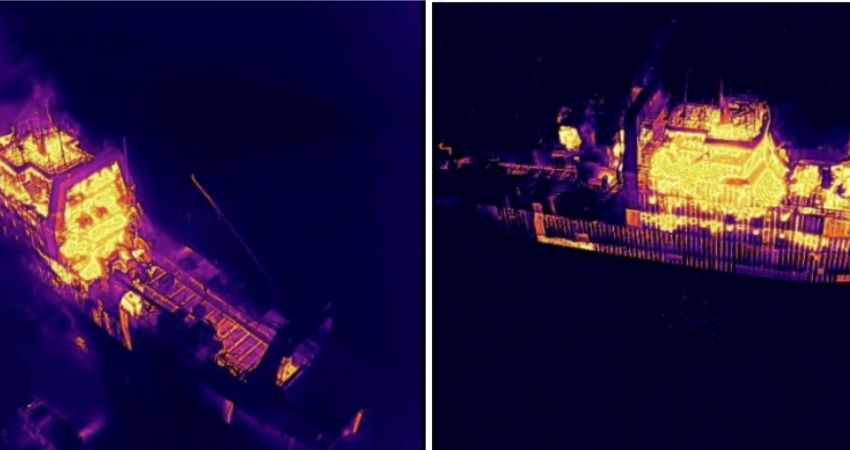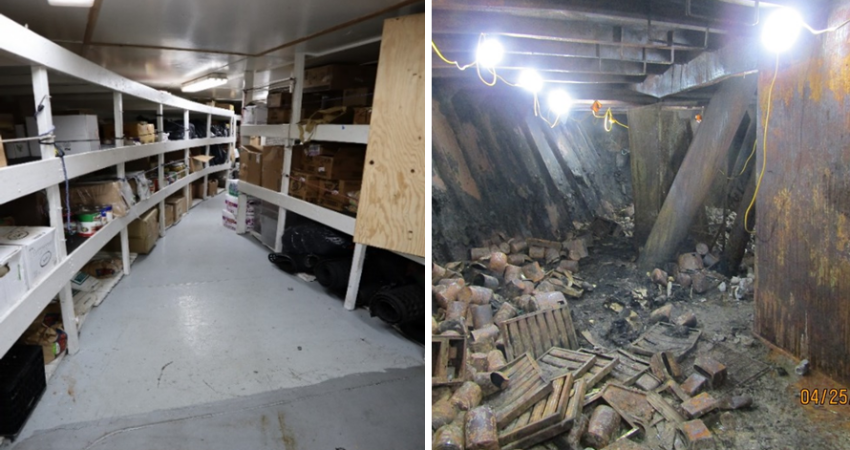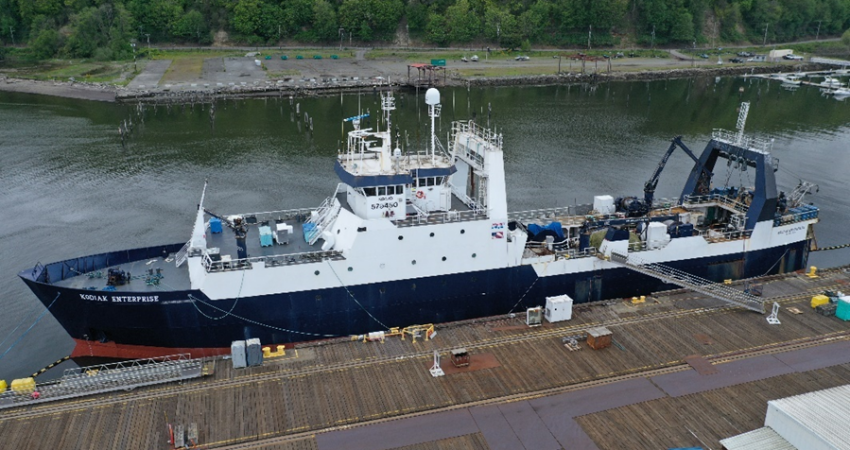An April 2023 fire that burned for six days on a factory trawler docked in Tacoma, Wash., began in the dry stores room and endangered crew members sleeping on board, according to a National Transportation Safety Board report.
The 252-foot Kodiak Enterprise was docked at a Trident Seafoods facility in Tacoma when the fire erupted April 8, 2023. Four crewmembers, who were living onboard during a scheduled overhaul, emerged uninjured. The commercial fishing vessel was declared a total loss of $56.6 million.
A deckhand from a nearby vessel first saw the fire around 3 a.m. and reported it to a Trident security guard, who then called a Trident official, who then alerted the sleeping crew, according to NTSB investigators.
“By the time the crewmembers were notified of the fire, it had spread from the dry stores room into the deck locker and the galley and mess area. Had the fire detection and notification system operated as intended, the crewmembers would have had greater time to evaluate and potentially attempt to extinguish the fire,” the report notes.
“The fire detection and notification system was not designed to activate an audible alarm throughout the vessel; instead, the fire detection alarm on board only sounded at the bridge, the engine room, the watermaker room, and the refrigeration room, which were not crewed while the vessel was docked.”
Trident Seafoods contacted Resolve Marine, an emergency marine firefighting, salvage, and pollution response company, in accordance with Trident’s vessel response plan, and the contractors worked alongside the Tacoma Fire Department to bring the blaze under control.

“The Kodiak Enterprise had a fire detection and notification system designed to send an alarm by text or email when set for in-port operation,” according to a summary by the NTSB. “However, the system did not send a notification the night of the fire. Investigators determined the vessel’s inadequate fire detection and notification system – which was not designed to sound in crew accommodation spaces and failed to wirelessly alert shoreside contacts – contributed to the risk to the onboard crewmembers and to the severity of the fire.”
The agency said the fire shows the need for comprehensive alert and warning systems.
“Vessel wireless monitoring and notification systems with an ‘in-port’ setting allow operators to be notified of a potential emergency when a vessel is moored at the dock and crews are not standing a 24-hour watch,” the report said. “Vessel operators should test the system on a set schedule to ensure it properly notifies the recipients of the alert. When the vessel is undergoing repair work that can cause false alarms, such as hot work, crewmembers should check the fire detection and notification system to ensure it is operating following the completion of work.”
The system was supposed to alert two shoreside contacts if a fire was detected. The crewmembers living on board were not listed among the notification system’s designated contacts. The report highlights that “crewmembers living or staying on board a vessel while it is in port should be included on the system’s designated contacts to be notified immediately in case of a fire or other emergency.”








